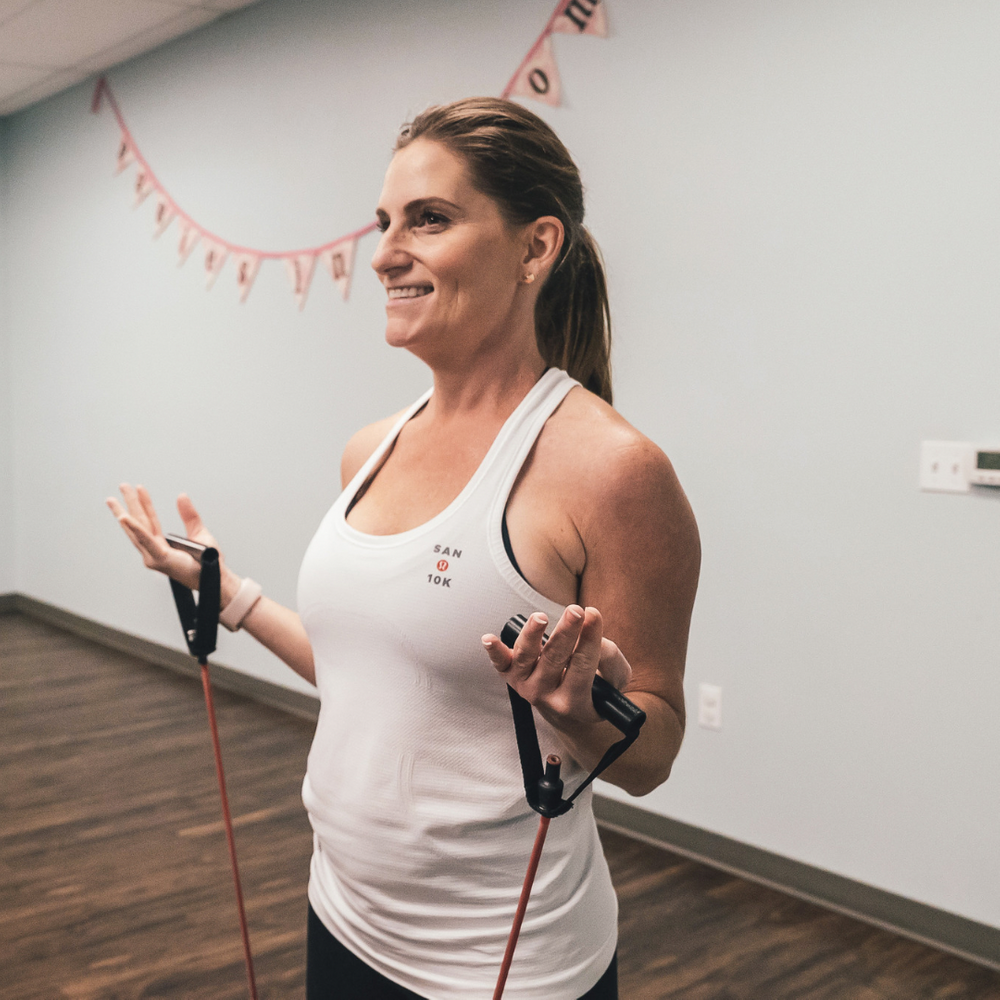Welcome to your 1st Trimester, mama.
Did you know that most women do not know they are pregnant until the end of their 1st Trimester? Major ‘construction’ is underway during all stages of pregnancy; while some women barely notice significant body changes, others will be hyper-aware and deeply affected! No matter when they find out about their pregnancy, little must change to a woman's fitness routine during her 1st Trimester. Pretty neat, right?
We know that some women feel intimidated or scared of exercising while pregnant—whether they were active prior to pregnancy or not. Our goal is to help reframe exercise for you during this precious time. The focus of exercise during this time should be on maintaining strength, easing the physical challenges of pregnancy, and preparing the body for birth and subsequent recovery.
If you were exercising regularly before getting pregnant, you should be able to continue most of your normal, preferred activities during the 1st Trimester—including intensity, impact, duration, and chosen style of movement. According to the American College of Obstetricians and Gynecologists, some contraindications and considerations can stop a woman from continuing in fitness while pregnant. There are also Urgent Maternal Warning Signs that should encourage a pregnant woman to seek immediate medical attention.
However, exercise should not exceed pre-pregnancy intensity levels. If you exercised at a moderate pace for the majority of your workouts prior to pregnancy, you can continue. If you were not practicing high-intensity interval training prior to pregnancy, you should not start now.
Although you may not look pregnant in your 1st Trimester, your body is going through SO many hormonal and physical changes. You may also be feeling exhilarated, nervous, exhausted, and stressed. Although pregnancy news can be exciting, it can also be emotionally stressful. It's natural to worry about your health, the baby's health, the financial burden of raising a child, and the transition to the next stage of parenthood. All of these emotions are normal and natural. If these emotions rise to a level that makes you worry, please see a healthcare professional as soon as possible.
Remember that the physical and hormonal changes you are experiencing may cause mood swings, tender breasts, nausea, constipation, and more. You may need to adjust your training regimen to continue doing the movements you love safely and effectively.
Let's dive into our Start, Stop, and Continue method for fitness in the 1st Trimester.

